Women's health: I'm in pain but it took years for anyone to listen
- Published
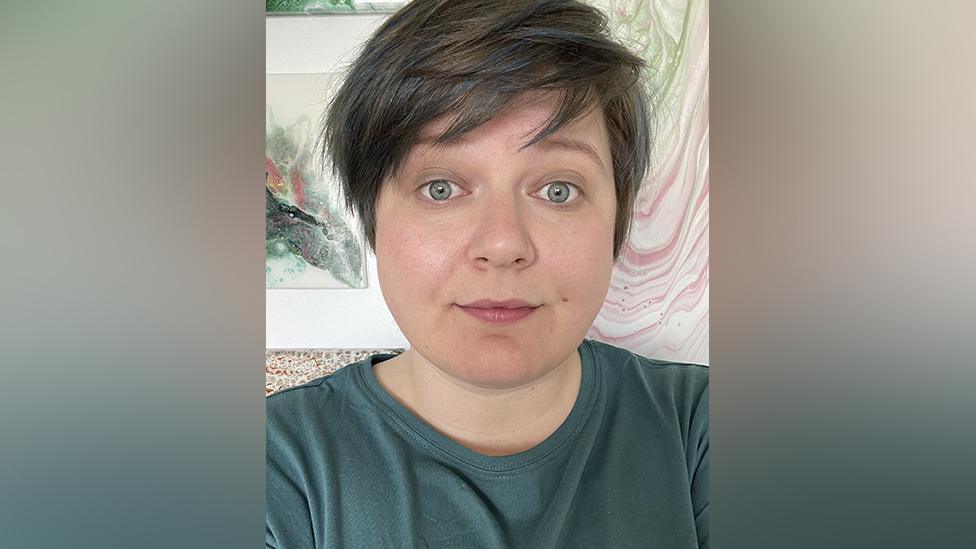
Niki Bryden is due to have surgery next week
Niki Bryden has been in pain for years, but she has endured a long battle to be taken seriously by medics.
She has a large fibroid - a non-cancerous growth in or around the womb - but has been repeatedly told that fibroids don't cause pain.
It meant she even doubted what she was feeling, at one point thinking: "Am I making this up?".
Ms Bryden, who takes 18 painkillers a day, is now due to undergo surgery for the condition next week.
She recalled her ordeal as the Scottish government prepares to publish a new women's health plan.
A draft document, seen by BBC Scotland, recommends better access to diagnosis and treatment for endometriosis, and for the provision of specialist menopause services.
It calls for improved access to information on menstrual health and contraception as well as the creation of a women's health champion.
For Ms Bryden, 34, from Glasgow, the developments can't come quick enough.
She told BBC Radio's Good Morning Scotland: "It has been about four years but it took about two years for anyone to listen to me so they just sent me home."
She said she did her own research before asking to see a gynaecologist.
"Mentally I'm knackered," she said.
"At one point I thought I was dying and I was like 'I don't really think that would be that bad' because I don't know how to live like this."
She welcomed the women's health plan and hopes it makes a difference to patients who, until now, have been dismissed and told there is nothing really wrong with them.
In her case it was a male gynaecologist who was the first person to say he could help her.
She added: "The first gynaecologist I saw was a woman and she said she wouldn't help me because I was too young and hadn't had children yet."
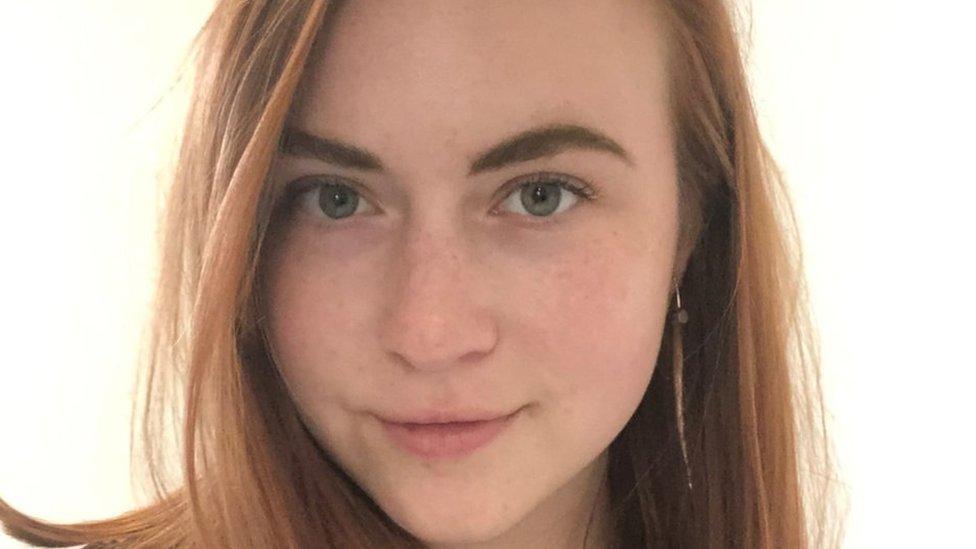
Brittnee Leyson hopes the new report will make a difference to the way women are treated by the health service
It took seven years to diagnose Brittnee Leyson's endometriosis - a debilitating gynaecological condition which affects one in 10 women.
The Glasgow-based PhD student said the system appeared to be geared against her.
"I have been told to my face that the symptoms I was experiencing and the pain that I had was impossible and the damage was being done was something that I actually couldn't feel," she said.
Ms Leyson, 28, hopes the new report will have a positive impact.
She added: "The medical gaslighting has caused so much damage to women over time. It is definitely a long overdue step."

What is endometriosis?
Where tissue like that found in the lining of the womb grows elsewhere in the body, often around the reproductive organs, bowel and bladder
Like the womb lining, the tissue builds up and bleeds every month but, with no way to escape the body, the blood is trapped, leading to inflammation, pain and formation of scar tissue
For some women there are no symptoms, but for others it can cause chronic pelvic pain, painful sex, bowel and bladder problems and painful periods., external
In the UK it takes an average of seven and a half years to be diagnosed.
There is no cure, but treatments including hormone therapy, pain relief or surgery can reduce symptoms

Lucky Saraswat, consultant gynaecologist at Aberdeen Royal Infirmary, described the new report as a "really positive step" as women's health services have historically been underfunded and under resourced.
"It is shocking to see that gender-based inequalities exist even in health care," she said adding that discrimination was taking place at "all levels".
"Most of our understanding of the disease processes comes from research which has been done in men alone," she said.
"Similarly one in three women experience gynaecological problems but there is only two to three per cent of research funding."
'Decisive action'
Dr Patricia Moultrie, deputy chair of BMA Scotland, said the main issues women have are the delay between presentation, diagnosis and effective treatment for conditions such as menstrual disorders and the menopause.
A working GP, she said pressure on the NHS is a factor and said GPs need more time with patients.
"I think it is important that women and girls' expectations are high of their health so they do feel enabled to come forward," she added.
"But I appreciate that just presenting is not enough.
"We need to have the facilities and the resources to adequately manage those presentations when they come forwards."
A Scottish government spokeswoman said: "We are committed to publishing a women's health plan which will address the inequalities affecting women's health and take decisive action to improve services across all age groups in Scotland.
"Work is still being done on the plan, which has not yet been finalised. It will be launched before the end of the month."
- Attribution
- Published9 March 2021
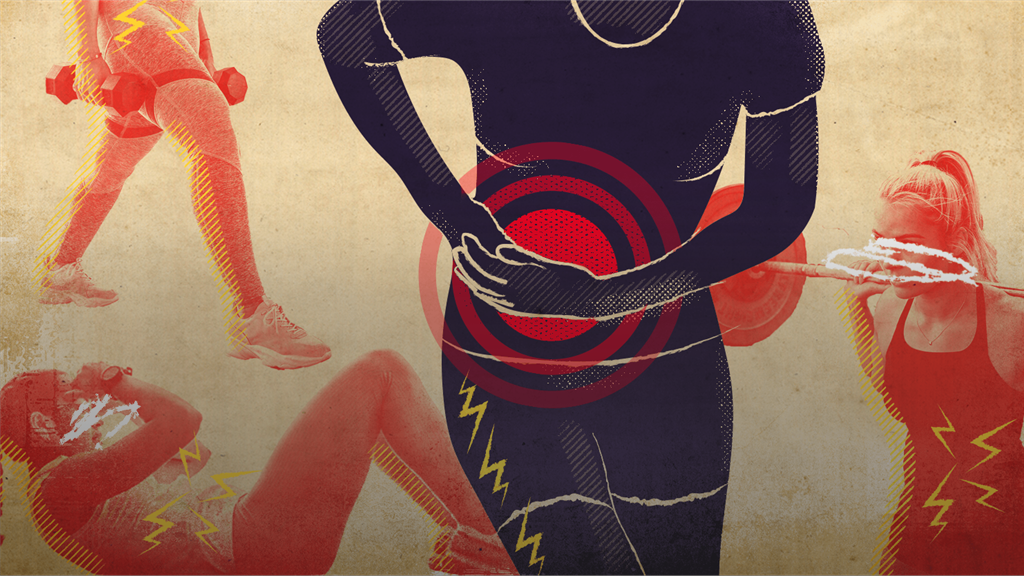
- Published5 March 2021
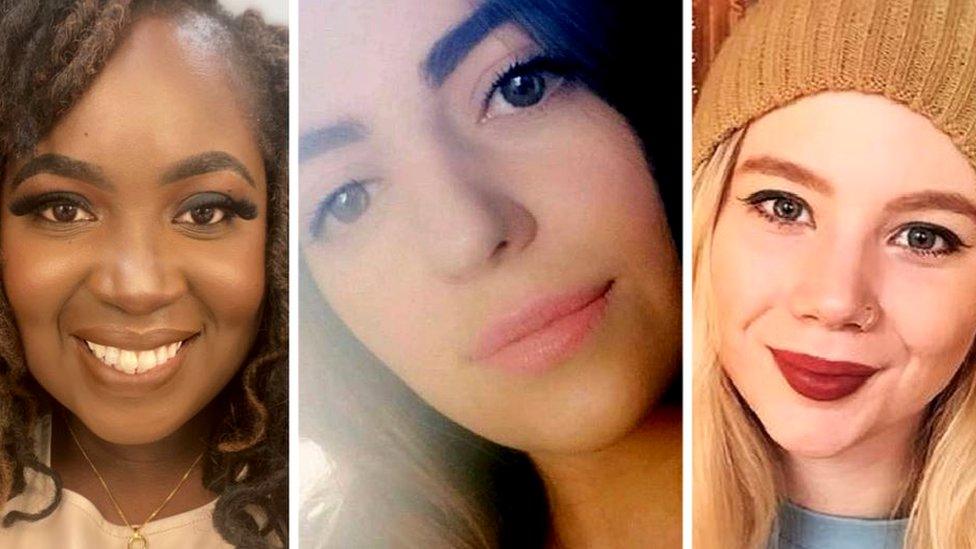
- Published28 February 2020
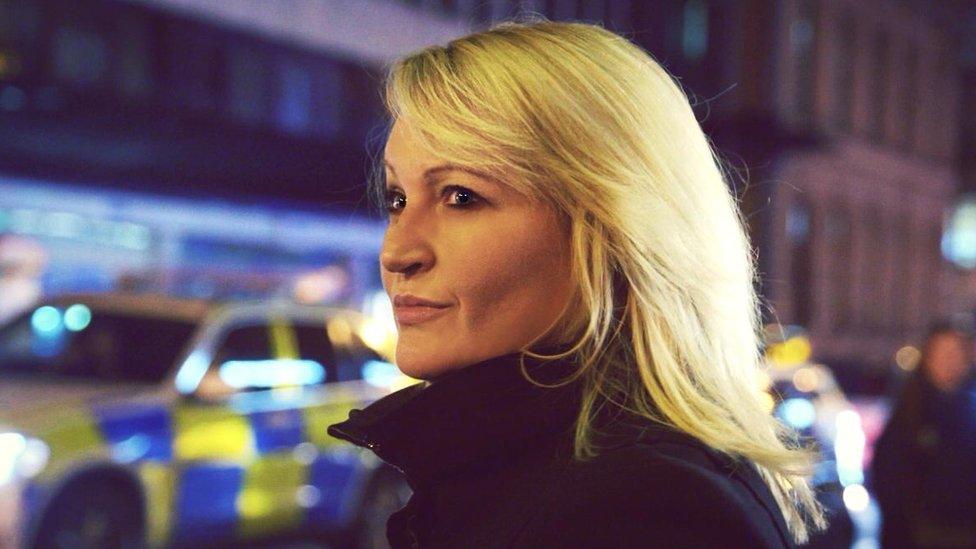
- Published15 June 2018
